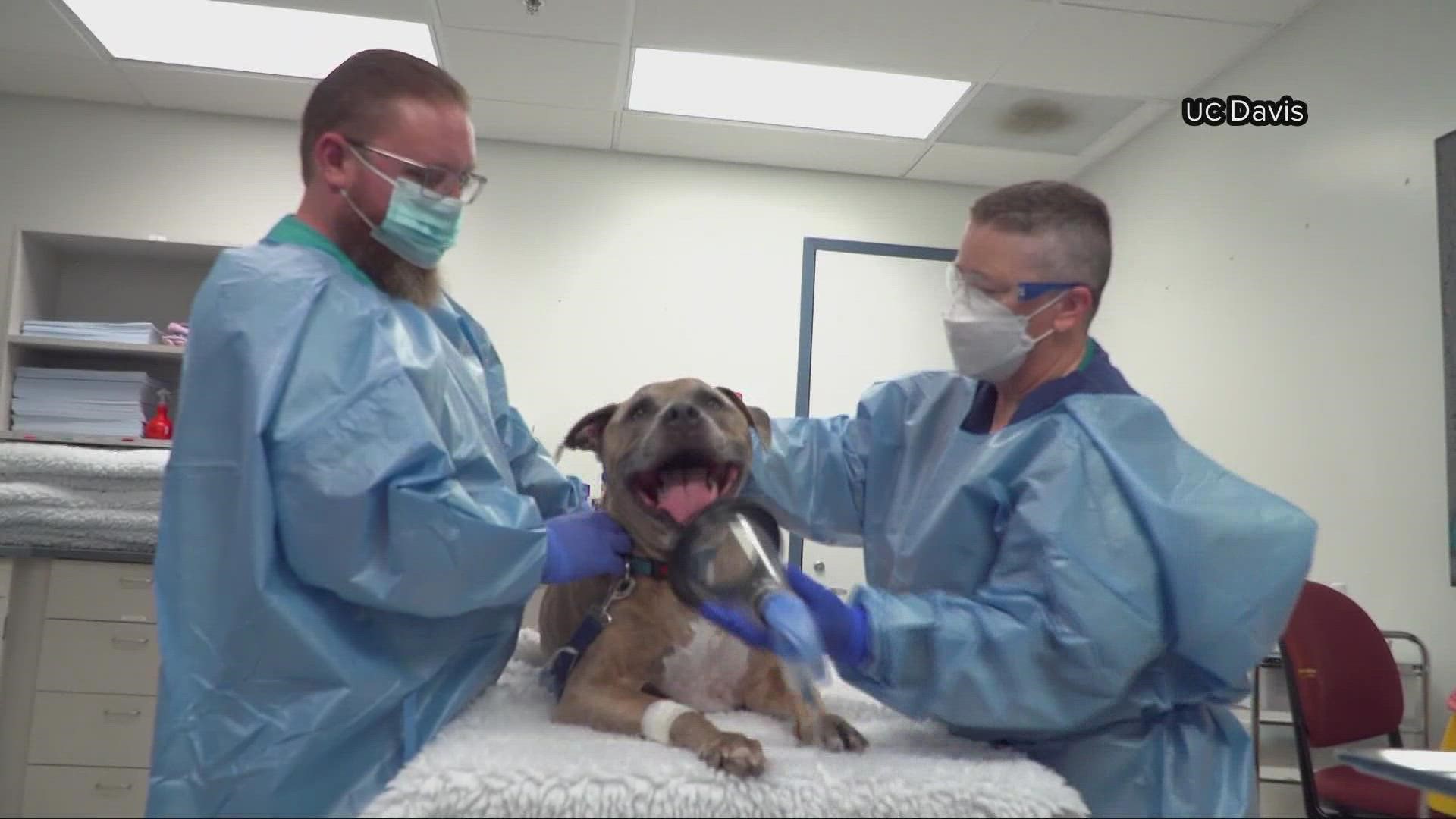SACRAMENTO, Calif. — A groundbreaking study at UC Davis is looking at how cancer in dogs might help cure cancer in humans.
The new clinical trial is testing inhaled immunotherapy mists that could be used in people one day. As far as the inclusion of dogs is concerned, it turns out they actually have more in common with people than some might think.
"Dogs get at least as much cancer as humans do, and there are various reasons for that. They live in the same environment as humans that are exposed to many of the same carcinogens, their lifestyle is very similar and they also tend to live a long time," said Dr. Robert Canter, UC Davis oncology surgeon.
The study is a special partnership between the UC Davis Comprehensive Cancer Center and the UC Davis Veterinary Medicine Center. Doctors say it's much different than other animal testing.
"It's not something that is in any way being given to the dogs or they're being placed at risk for getting cancer; they get cancer very similar to humans, which unfortunately, is somewhat randomly," said Dr. Canter.
One of those dogs, Tyson, is a nearly 90-pound English Mastiff mix. He had bone cancer and had his leg amputated. His owners were devastated when he wasn't given much longer to live.
"I was like, we gotta figure out what to do next," said Brianna Fizulic, Tyson's owner.
They joined the study ,and a year after starting him on misting treatments and conventional chemotherapy, Dr. Rob Rebhun sees Tyson for follow-up visits and continues to give the dog's family good news.
"I definitely believe that the clinical trial, in my eyes, improved his quality of life," said Fizulic.
That's something doctor's say they strive for in all of their patients, no matter their species.
"It's just really exciting to be able to do something that you love and see these patients come in wagging their tail and happy and hoping that it can help them and others as well," said Dr. Rebhun.
WATCH ALSO:



















